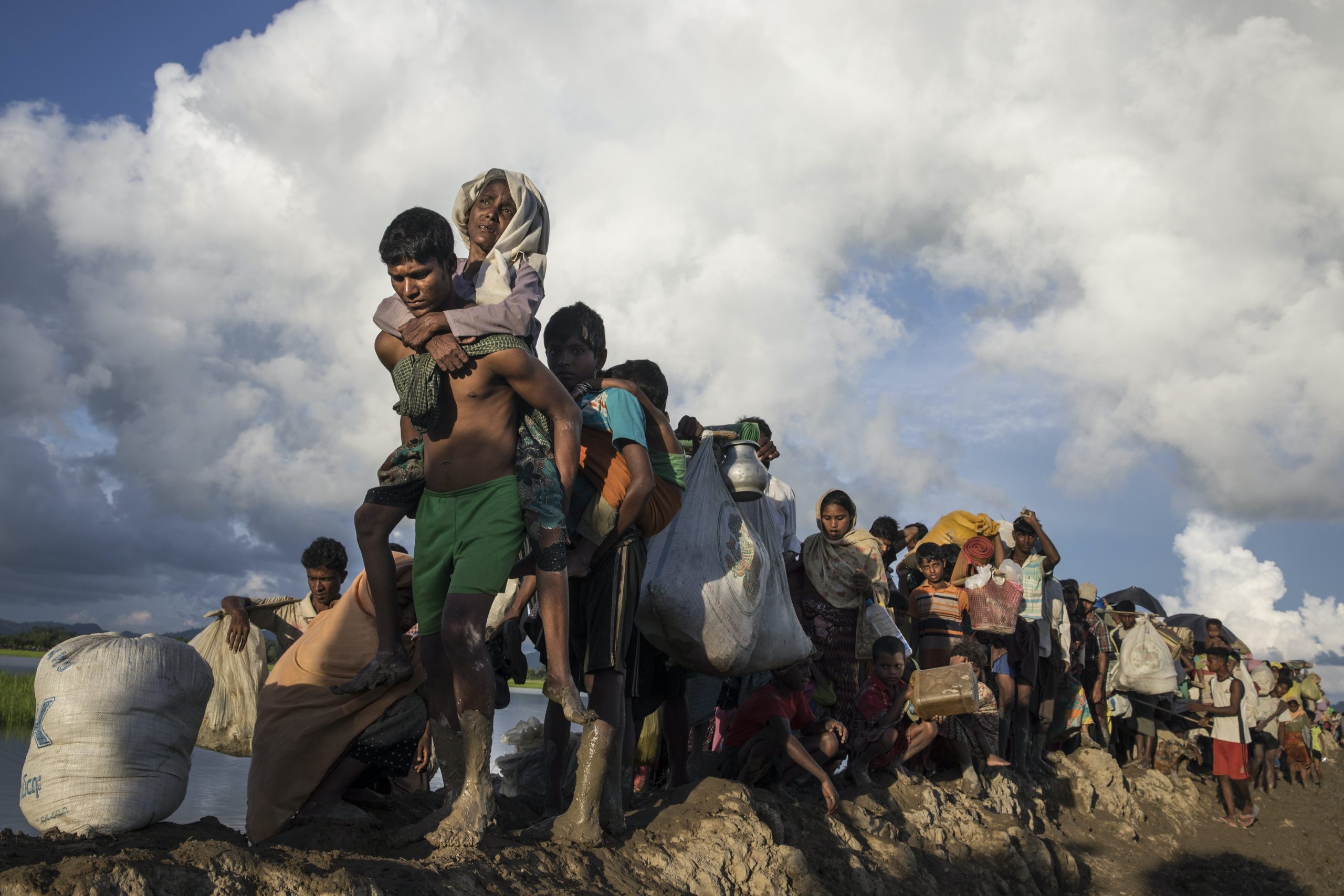Background
In a country where ethnicity has long been linked to conflict, it is not surprising that ethnic minorities have been disproportionately affected since the onset of February 2021 military coup. Myanmar is considered one of the most ethnically diverse countries in the world, having officially recognized 135 ethnic groups despite its controversy. Among these are the Rakhine, the Buddhist majority residing in Rakhine state, also home to the Rohingya. Unlike the Rakhine, however, the Rohingya are not recognized by the government as one of the country’s ethnic groups, and have been denied citizenship since the 1960s. Moreover, rising tensions between the Myanmar’s military, also known as Tatmadaw, the Arakan Army, and the Arakan Rohingya Salvation Army in 2017, led to a massive exodus of Rohingya, most of which are currently still displaced in Bangladesh refugee camps.
While at first glance it may seem like the latest military coup can only spell disaster for the Rohingya, who were already being severely persecuted before the coup, there might be a silver lining to the current situation in the form of the recently formed National Unity Government.
The National Unity Government: A new opportunity
When the military seized power on February 1, effectively ousting the then ruling political party, the National League of Democracy (NLD), its members did not back down. Neither did other elected members of the Pyidaungsu Hluttaw (Myanmar’s Parliament) belonging to various political parties, including ethnic parties. Instead, they became the Committee Representing Pyidaungsu Hluttaw (CRPH) and formed the National Unity Government (NUG). Operating in exile, the NUG has managed to amass widespread support inside Myanmar; protestors waving NUG banners a common sight.
Gaining international recognition as the legitimate government of Myanmar has proven much more difficult, but the NUG just recently had two major feats. On October 5, France became the first country to recognize the NUG after the French Senate unanimously passed the resolution “on the need to recognize the National Unity Government of Burma”. Shortly after, on October 7, the European Parliament also passed a resolution on the human rights situation in Myanmar, where it explicitly noted that the European Parliament “supports the CRPH and the NUG as the only legitimate representatives of the democratic wishes of the people of Myanmar”.
So far, no other countries or regional organizations have followed suit, although some have expressed different levels of solidarity. The USA, for instance, has been imposing economic sanctions on military-controlled enterprises, as well as military officials and their families since March 2021, while Malaysia’s Foreign Minister recently warned it will open talks with the NUG if the military junta remains unwilling to uphold the five-point consensus agreed on by ASEAN representatives during the May 2021 ASEAN Summit.
The ICC and the plight of the Rohingya
The NUG’s vision is to “build a peaceful Federal Democracy Union which guarantees freedom, justice and equality”, which among other values, includes protecting minority rights. But what does this mean for the Rohingya? In a country where the military and even the NLD have denied genocide claims against the Rohingya, it is not unreasonable to doubt whether the NUG, led by NLD members, has the determination to strive for the protection of the Rohingya’s rights as much as other ethnic minorities’ rights.
In November 2019, the Republic of The Gambia filed a case against the Republic of the Union of Myanmar in the International Court of Justice (ICJ) for violating the Genocide Convention, with the aim of ending ethnic cleansing against the Rohingya, holding the perpetrators accountable and preserving all relevant evidence of the case. However, because Myanmar is not a party to the Rome Statute, the ICJ and the International Criminal Court (ICC) cannot investigate crimes occurred in Myanmar, therefore, only crimes partly occurred in Bangladesh are being investigated. As of today, the case is still ongoing.
Despite the initial skepticism towards a potential NUG commitment to Rohingya rights, the NUG has vowed to repeal the military-drafted 1982 citizenship law that excluded Rohingya, and has even expressed support for the ICC genocide investigation by accepting the ICC’s jurisdiction in the country on behalf of the Republic of the Union of Myanmar. This would mean that if the NUG were recognized as the legitimate government, the ICC would be allowed to investigate the crimes outlined under The Gambia v. Myanmar case that also occurred in Myanmar, not only Bangladesh.
Moving forward
Many challenges lie ahead for the NUG to be able to deliver on its promises. Although the NUG seems to slowly be garnering international recognition, international legitimacy will only get them so far in Myanmar. Based on military capabilities alone, even with the recent formation of the NUG-backed People’s Defense Force and the pressure exercised by Ethnic Armed Organisations (EAOs), overthrowing the military by force seems far-fetched. Seeing as the Tatmadaw’s course of action has repeatedly been characterized by brutal crackdowns against any form of opposition, it also seems unlikely for the Tatmadaw to initiate a peaceful transition at the moment, unless their grip on power is directly threatened.
As long as military rule prevails, the Rohingya will be denied their right to citizenship. Moreover, the Rohingya together with all other ethnic minorities, will continue to be subjected to arbitrary detentions, extra judicial killings and other human rights violations. Therefore, Rohingya’s best chance of having all rights restored and being acknowledged as an ethnic minority in Myanmar, lies in the hands of the NUG’s – and all of the country’s – ability to oust the Tatmadaw.
Image – Paula Bronstein/Getty Images

